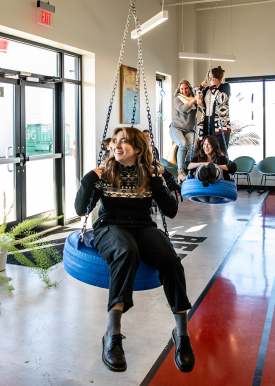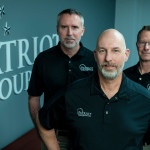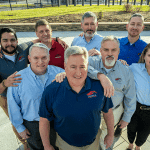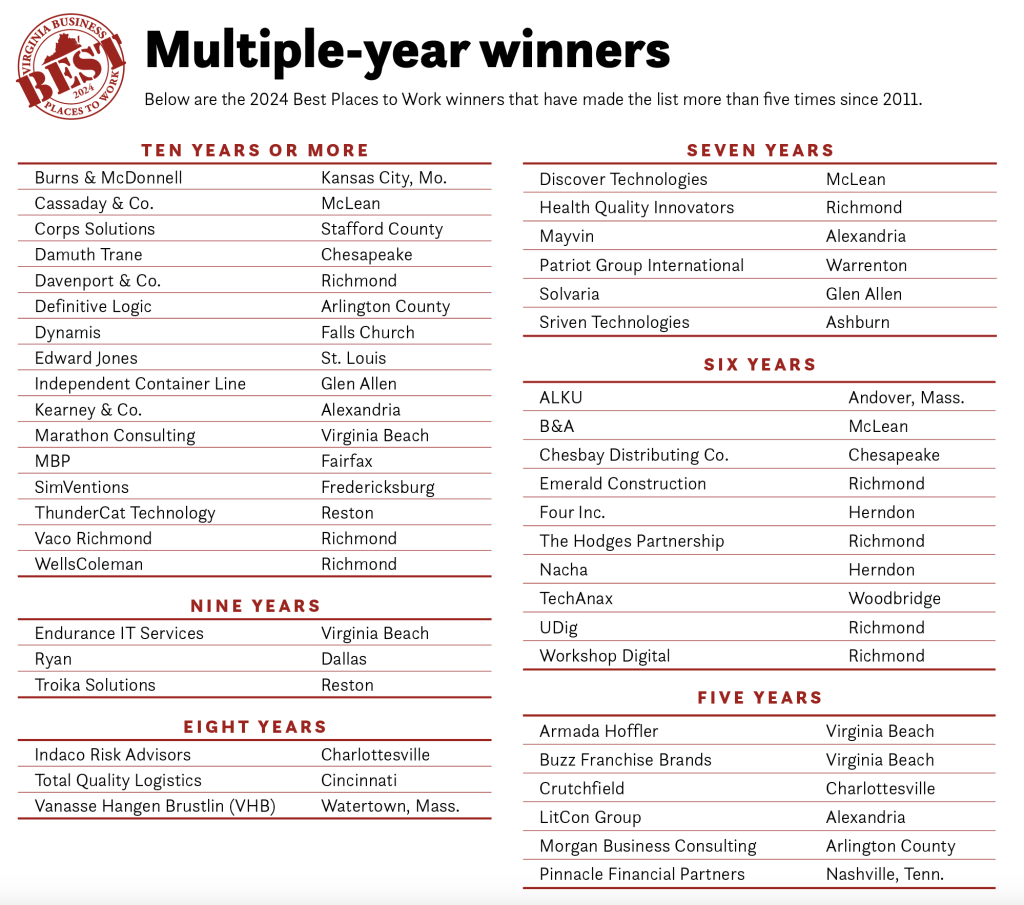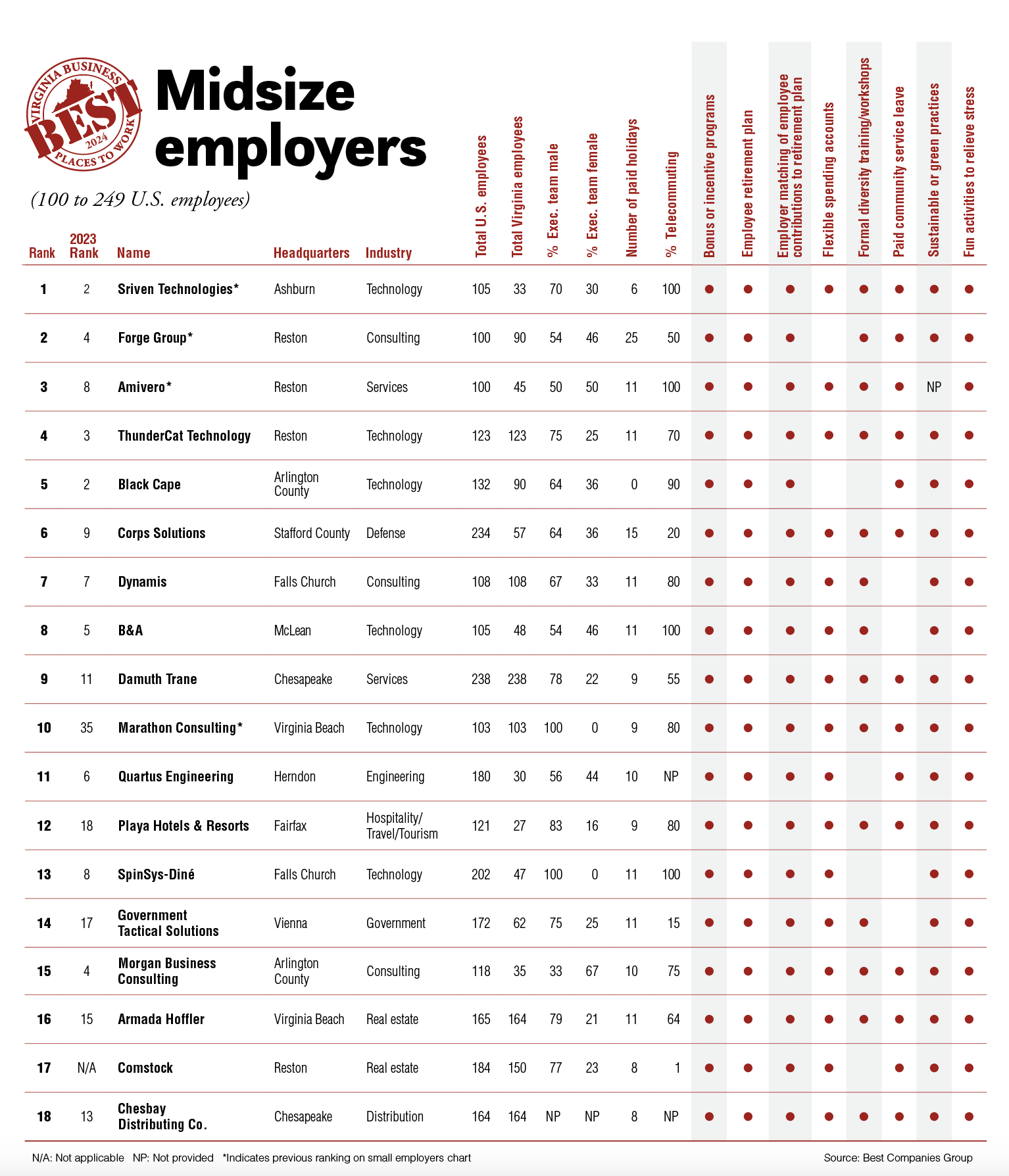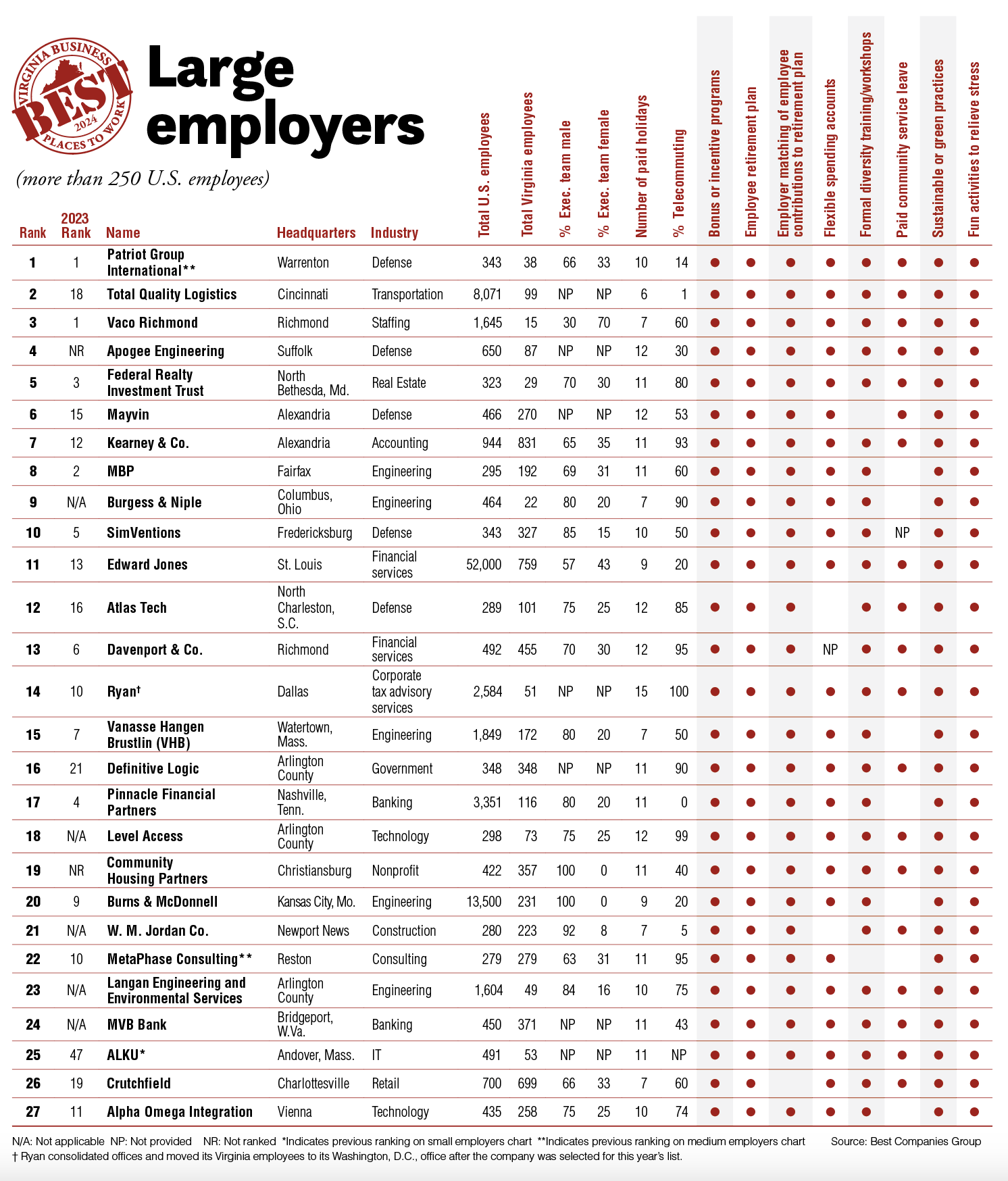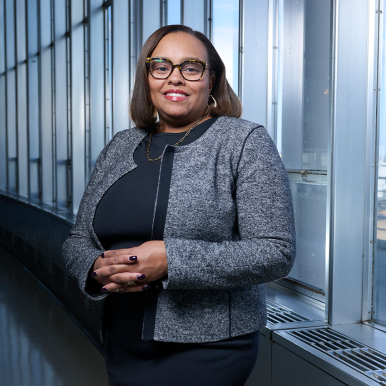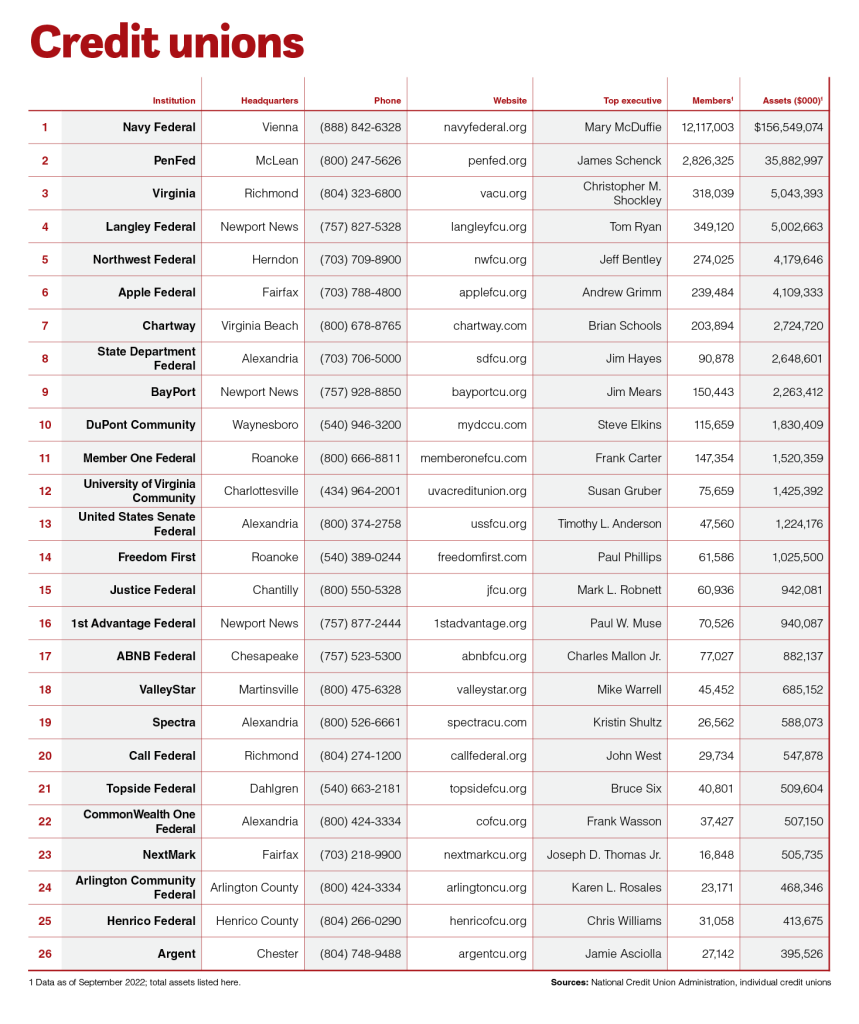Central Virginia
A halal meat business, 5 Pillar Meats, will invest more than $1.7 million to build an abattoir and red meat processing facility in Prince Edward County, a project expected to create 12 jobs, Gov. Glenn Youngkin announced Dec. 28, 2023. The nearly 3,000-square-foot facility will be located on a 3-acre site in the Prince Edward County Business Park in Farmville and will provide processing services for Southside Virginia livestock producers, focusing on beef, lamb and goats. The company is an extension of Green Bay-based Abdus-Sabur Farms. (VirginiaBusiness.com)
Cooperative Electric Energy Utility Supply, a South Carolina-based wholesale electrical distributor serving cooperatives, municipalities and investor-owned utilities, plans to invest $37 million into a new 187,000-square-foot warehouse and distribution facility in Hanover County, creating 30 jobs, Gov. Glenn Youngkin announced Dec. 21, 2023. CEEUS supplies electric cooperatives with materials and equipment and provides services such as repairing tools and testing rubber goods. The wholesaler’s retrofitted shell building in Hanover will be operational beginning in the first quarter of 2024, said Jennifer Howell, CEEUS’s director of human resources and loss control. (VirginiaBusiness.com)
The Henrico County Board of Supervisors on Dec. 12, 2023, greenlit Kinsale Center, a $450 million redevelopment project in the Willow Lawn area from insurance company Kinsale Capital Group and Richmond-based Marchetti Development. The mixed-use development is expected to bring nearly 700 residences, an eight-story hotel, 32,300 square feet of retail and 345,000 square feet of new office space to the 29-acre former Elevance Health (formerly Anthem) campus at the northeast intersection of West Broad Street and Staples Mill Road. Two office buildings are already on the site. (VirginiaBusiness.com)
Hotel operator Shamin Hotels reached an agreement with the Chesterfield Economic Development Authority to relocate a proposed $75 million Hilton hotel and conference center from Stonebridge to the adjacent Springline at District 60 mixed-use development underway on Midlothian Turnpike off Chippenham Parkway. The Chesterfield County Board of Supervisors approved the move during its Dec. 13, 2023, meeting. The hotel’s proposed 12-story design includes 260 rooms, 20,000 square feet of conference space, a second-floor outdoor terrace and a rooftop bar. Shamin initially struck a deal with the county to place the hotel at Stonebridge in 2019.
(Richmond Times-Dispatch)
When University of Virginia President Jim Ryan met with the university’s board of visitors on Dec. 8, 2023, he suggested
that U.Va. organize a committee to devise a set of guidelines that would help him determine if and when to respond to current events that happen outside the university community, and the board agreed. As of late December, U.Va. didn’t have details on how committee members would be selected. Ryan’s suggestion followed congressional committee hearings with the presidents of Harvard University, the University of Pennsylvania and the Massachusetts Institute of Technology regarding the rise in antisemitism on their campuses. Those hearings led to the resignations of Harvard’s and Penn’s presidents. (The Daily Progress)
PEOPLE
Arko has named Robert E. Giammatteo as its chief financial officer and executive vice president. The Henrico County-based Fortune 500 company, one of the nation’s largest convenience store operators and fuel wholesalers, announced Giammatteo would start his new role Jan. 2, 2024. He is also serving as CFO of Arko subsidiary GPM Investments. Giammatteo takes the place of retiring Arko CFO Don Bassell, who has spent 17 years with the company and will stay on until April to assist with the transition. Giammatteo joins Arko from Pittsburgh-based grocery chain Giant Eagle. (VirginiaBusiness.com)
Easteren Virginia
With the clock ticking on HeadWaters Resort & Casino’s statutory requirement to open a permanent resort casino by November 2025 — five years after Norfolk voters approved it — the developer in December 2023 submitted new plans to the City of Norfolk, aiming to start construction in spring 2024. Instead of building the $500 million casino and resort in two phases with a gap between each phase, plans call for the development to be constructed continuously with the casino opening while the hotel, spa and other parts are still under construction. The casino and resort would also no longer be on the Elizabeth River waterfront and would have a smaller footprint. (VirginiaBusiness.com)
A manufacturer of modular housing once touted by officials as a way to combat the affordable housing crisis canceled plans in December 2023 to build a Newport News factory, according to city and company officials. More than two years after the announcement, Idaho-based indieDwell pulled out of plans to spend more than $2 million to build a steel modular housing factory at 520 21st St., Newport News Assistant Development Director Derek Perry said. The facility would have added 220 jobs. Development officials worked with the company after the announcement to find a financing structure for the facility, but increases in building costs and interest rates caused the deal to fall through, Perry said. (Daily Press)
The budget proposed by Gov. Glenn Youngkin for the next two fiscal years includes $74 million for Norfolk’s massive coastal storm project. The project has been in the works for nearly 10 years. It was developed in the wake of analysis about areas vulnerable to coastal storms directed by Congress after Hurricane Sandy. It features pump stations, tide gates, surge barriers and a floodwall that will wrap around the riverfront from near the Campostella Bridge to Lambert’s Point. The project, in partnership with the U.S. Army Corps of Engineers, will cost a total of about $2.6 billion. (WHRO)
Pharrell Williams’ Something in the Water festival will not be held in April during the traditional College Beach Weekend as in years past, according to Virginia Beach. A new festival will take its place April 26-28. Audacy Virginia plans to host pop and rock concerts at 31st Street on the beach. According to a city planning presentation in December 2023, Something in the Water may be held in October.
(The Virginian-Pilot; WAVY)
A plan to double the size of a natural gas pipeline in Hampton Roads now has approval from regulators despite opposition from environmental groups. The expansion, called the Virginia Reliability Project, would dig up, replace and double the size of two sections, or about 48 miles, of Columbia Gas pipeline between Chesapeake and Petersburg. The company said the project will provide a large one-time boost to the regional economy. According to economic analysis from TC Energy, the construction phase of the project would support 3,635 jobs, more than $500 million in economic output, $7.7 million in local tax revenue and $8.6 million in state tax revenue. (The Virginian-Pilot)
PEOPLE
Groundworks hired Michael Mullican as its chief financial officer, the Virginia Beach-based foundation and water management solutions company announced in early January. Mullican succeeds Stephen Fry, who will retire at the end of March. Mullican was previously president and CFO of Texan sporting goods retailer Academy Sports + Outdoors, where he also served as executive vice president and general counsel during his six years’ tenure and led efforts to take the company public. Founded in 2016, Groundworks’ brands have 60 offices and more than 4,500 employees. (VirginiaBusiness.com)
Northern Virginia
Five years after choosing Arlington County as the home of its second headquarters, Amazon.com has secured its place as the county’s top private employer, leapfrogging a pair of mainstays. The e-commerce and cloud computing giant, which opened its first two HQ2 towers in June 2023, was listed behind the federal government at No. 1 and the county government and Arlington Public Schools at No. 2 for fiscal year 2023. HQ2’s employee headcount stood at 8,000 as of late December 2023. (Washington Business Journal)
Nearly a week after a four-foot wall panel blew out of a Boeing plane cabin midair, exposing Alaska Airlines passengers to open air at 16,000 feet, the Federal Aviation Administration formally notified the Arlington County-based aerospace giant Jan. 10 that it will investigate the company’s potential role in the incident and whether it failed to ensure its products were in safe operating condition. President and CEO Dave Calhoun said the company will cooperate fully with the FAA investigation. (VirginiaBusiness.com)
Virginia State Sen. David Marsden, D-Fairfax, reintroduced legislation for the 2024 General Assembly that would let Fairfax County hold a referendum on building a casino. He introduced similar legislation last year that went nowhere. But this year’s bill envisions a convention center, concert hall, hotel and other amenities in Tysons, but the legislation would allow the county to pick a site anywhere near one of the Silver Line Metro stations, including Reston. Meanwhile, the City of Petersburg will also ask the state legislature for permission to hold a referendum to build its own casino. (Associated Press)
Stafford County supervisors unanimously approved a data center performance agreement with Amazon.com on Jan. 2. The agreement pertains to the Potomac Church Tech Center, two data center buildings planned on 50 acres off Old Potomac Church Road, near U.S. 1 and Stafford Hospital, expected to bring in $251 million in total tax revenue over the next 25 years. The agreement also will cover any future campuses, including a second, undetermined site that is expected to generate three times more revenue than the Potomac Church Tech Center. (The Free Lance-Star)
As of late December 2023, 11 Democrats and two Republicans were seeking their party’s nomination in June, hoping to succeed U.S. Rep. Jennifer Wexton, D-Loudoun County, in the state’s 10th Congressional District. Wexton announced last year that she is not seeking reelection for health reasons. Among Democrats, former Virginia House speaker Eileen Filler-Corn and Del. Dan Helmer are both prodigious fundraisers from Fairfax County. The two Republican contenders — Brooke Taylor and Mike Clancy — both ran for Wexton’s seat in 2022. The district is anchored in Loudoun but stretches into Fairfax, Prince William, Fauquier and Rappahannock counties. (The Washington Post)
PEOPLE
Ashburn-based DXC Technology replaced its chairman, president and CEO, Mike Salvino, with interim President and CEO Raul Fernandez. The Fortune 500 IT company announced the move Dec. 20, 2023. Salvino served as president and CEO since 2019 and as board chairman since 2022, and Fernandez has been a member of DXC’s board of directors since 2020. He is also vice chairman and co-owner of Monumental Sports & Entertainment, which owns the Washington Capitals and the Washington Wizards. (VirginiaBusiness.com)
In January, a day after his team fell to the Dallas Cowboys to finish the season 4-13, Washington Commanders owner Josh Harris fired coach Ron Rivera. He’s enlisted former Golden State Warriors general manager Bob Myers and former Minnesota Vikings GM Rick Spielman to advise in the searches for a new head of football operations and coach. (The Washington Post)
Roanoke/ New River Valley
A customer of Berglund Automotive says he and about 51,000 others were the victims of a data breach at car dealerships that collected their personal information. The total amount of losses could exceed $5 million, according to a lawsuit filed in mid-December 2023 in U.S. District Court in Roanoke. The 49-page document accuses Berglund of failing to take adequate steps to prevent its system from being hacked. Berglund has about 20 locations in Roanoke, Lynchburg, Bedford and Salem. It was not clear if the breach affected customers at all of the dealerships. (The Roanoke Times)
State regulators are proposing that a Botetourt County automotive parts manufacturer pay a civil charge of $227,790 after they say the company released too much hydrochloric acid into the air over a period of several years. Under the Virginia Department of Environmental Quality’s proposed consent order, Dynax America also would have to submit a plan by June 1 explaining how it will bring its factory in the county’s EastPark Commerce Center into compliance with required emissions limits. (Cardinal News)
Framatome, a French nuclear power company with its United States headquarters in Lynchburg, will invest $49.4 million to expand, modernize and enhance its facilities, creating an estimated 515 jobs, Gov. Glenn Youngkin announced in late December 2023. The expansion will meet increased demand for servicing existing nuclear power plants and developing solutions for advanced and small nuclear reactors. At the end of October 2023, Framatome had 1,350 employees in Lynchburg, where it has had a presence since 1989. Framatome designs, services and installs components, fuel and instrumentation and control systems for nuclear power plants worldwide. (VirginiaBusiness.com)
LewisGale Hospital Montgomery will temporarily suspend obstetrics services for women during pregnancy and childbirth, effective April 1, a hospital spokesperson said Jan. 3. Amid a national shortage of health care workers, recruiting full-time providers at the Blacksburg facility has been challenging in recent years, leading to the decision to discontinue services. It’s not clear how many babies are typically delivered in a year at the facility. LewisGale is part of HCA Healthcare, one of the largest for-profit health systems in the United States with hundreds of hospitals and clinics across the country. (Cardinal News)
Plans are in motion to bring Roanoke its first large-scale affordable housing development in 20 years. And it’s going to take a lot more to fill the need for those living spaces, officials said. The Roanoke Redevelopment and Housing Authority recently acquired
12.2 acres at the intersection of Peters Creek Road and Shenandoah Avenue Northwest for $1.04 million, according to city documents. Housing Authority Executive Director David Bustamante said the plan in coming years is to provide housing for at least 86 low-income families there. (The Roanoke Times)
PEOPLE
G. Michael “Mike” Pace Jr., a longtime managing partner of Roanoke’s Gentry Locke Attorneys law firm and a Virginia Bar Association president, died Jan. 8 at age 66 after a long illness. A graduate of Washington and Lee University’s law school, Pace started at Gentry Locke in 1983 and served as its second managing partner from 1999 until 2012. He was Roanoke College’s first general counsel and a trustee for his alma mater, Hampden-Sydney College. (VirginiaBusiness.com)
Shenandoah Valley
Several dozen landowners in the Mauzy area of Rockingham County have drafted the county’s first ag-forestal district — composed of a collection of landowners who volunteer parcels to be part of a rudimentary conservation agreement — proposal to go before the board of supervisors in over 15 years. Under state law, the district must have a “core” of 200 acres. The Mauzy Ag-Forestal District proposal will go before the county’s agriculture advisory committee, the Rockingham County Planning Commission and the county’s board of supervisors. The planning commission will hold a public hearing on March 5. (Daily News-Record)
The State Council of Higher Education for Virginia provided Laurel Ridge Community College an $85,500 grant in early December 2023 to implement the mikeroweWORKS Foundation’s Work Ethic Certification curriculum into various trades programs. The grant will fund two instructors at the college who will dedicate part of their time to the MRW curriculum, developed by “Dirty Jobs” cable TV show star Mike Rowe. Participants complete 12 one-hour workshops based on statements of the S.W.E.A.T. (Skills and Work Ethic Aren’t Taboo) Pledge. Blue Ridge and Patrick Henry community colleges also received SCHEV funding for the certification curriculum. (The Northern Virginia Daily)
Valley Health and Anthem Blue Cross and Blue Shield agreed on a new contract keeping the Winchester-based health system’s services in-network with Anthem through 2028, Valley Health announced Dec. 20, 2023. Valley Health would have been out of network for approximately 55,000 Anthem patients who receive care annually at its facilities if the companies had not reached an agreement. Their previous contract had an expiration date of Dec. 31, 2023, which was extended through March 2024 because of active contract negotiations. In April 2023, Valley Health and Anthem reached an undisclosed settlement in the health system’s suit against the health insurance company over unpaid claims. (The Winchester Star)
The Virginia Department of Corrections announced Dec. 15, 2023, that it would close four facilities across the state, including Augusta Correctional Center in Augusta County. The facility, which opened in 1986, will close on July 1. The Augusta center had serious problems keeping sufficient staff, according to Harvey Yoder, chair of the Harrisonburg-based Valley Justice Coalition. The DOC said in a news release it has begun working with staff to find job placement opportunities within the agency. For correctional officers looking to stay in the area, the Rockingham County Sheriff’s Office is hiring. (Daily News-Record)
The Warren County Planning Commission reviewed a proposal for a five-story, 107-bedroom hotel on Cedar Park Court in its Dec. 13, 2023, meeting. L1 Investments owns the property, and Bela Hospitality 2 plans to design, build and operate the hotel. The hotel will require a conditional use permit, because its proposed height of 62 feet exceeds the county’s 40-foot height limit, as well as a rezoning of the site. The planning commission planned to hold public hearings on the rezoning and conditional use permit applications at a future meeting. (The Northern Virginia Daily)
Representatives of investment group Winchester Acquisition Partners and Winchester Planning Director Timothy Youmans presented plans for the Ward Plaza shopping center redevelopment to the city planning commission on Jan. 2. Winchester Acquisition Partners purchased the vacant center on Valley Avenue for $10 million on June 1, 2023. The group plans to create a 22-acre walkable, mixed-use development with a 53,385-square-foot grocery store, 448 residential units and 75,026 square feet divided between offices and retail stores. The residential units would be composed of 231 units in two high-rise buildings, 152 apartments in 76 two-story buildings and 65 three-story townhouse units. (The Winchester Star)
Southern Virginia
The temporary Caesars Virginia casino in Danville reported about $19.7 million in revenue for December 2023, up from $17.5 million in November 2023. That total includes $14.2 million from slots and $5.4 million from table games, according to the Virginia Lottery. The casino collected $3.5 million in taxes. Virginia’s gaming revenues from casinos in December 2023 totaled $58.5 million, according to the lottery. (VirginiaBusiness.com)
Henry County’s decadelong drought of new shell building construction will come to an end following the announced effort to erect one by 2025. The proposed building will be the culmination of an agreement between county officials and South Carolina-based Marlboro Development Team to construct an additional facility at the Patriot Centre Industrial Park. This will be the first time Henry County has partnered with a private company to build and promote an industrial building. Marlboro will foot the cost of construction and maintain ownership of the building. (Cardinal News)
Movement Bank, a Danville financial institution founded in 1919 by nearly two dozen Black community leaders, left its downtown home in January. The bank relocated its headquarters from 201 N. Union St. to 1296 Piney Forest Road. The new space opened Jan. 22. “This strategic relocation allows us to optimize our operations, embrace new opportunities and continue our mission of positively impacting the lives of the people we serve,” Michael Whitehead, president of Movement Bank, said. Movement Bank started as Savings Bank of Danville and was later called First State Bank, known as the last remaining Black-owned bank in Virginia. (Danville Register & Bee)
The companies behind MVP Southgate, a proposed natural gas pipeline extension from Southern Virginia into North Carolina, said in early January they will significantly reduce the route’s planned length and no longer hope to build a new compressor station in Pittsylvania County. Under a new plan, the proposed extension of the larger Mountain Valley Pipeline would run out of Pittsylvania County for 31 miles to natural gas delivery points in Rockingham County, North Carolina, instead of 75 miles into Rockingham and Alamance counties. The compressor station proposal already had faced a major setback after the Virginia Air Pollution Control Board denied it a permit in 2021. (Cardinal News)
A company that restores classic cars will expand its Pittsylvania County operation by investing $3 million and creating 30 new jobs in the process. The Pittsylvania County Industrial Authority announced in late December 2023 that KTL Restorations had entered into a lease-to-purchase agreement for a 12,000-square-foot building owned by the IDA at 2311 Cane Creek Parkway in the Ringgold East Industrial Park. The plan is to start upgrades on the building early this year and be in operation by the middle of 2024. (Danville Register & Bee)
PEOPLE
Linda Green, vice president of economic development for the Danville-based Institute for Advanced Learning and Research, as well as executive director of the Southern Virginia Regional Alliance, is the new president of the Virginia Economic Developers Association. The Virginia Beach-based nonprofit, nonpartisan association announced its new slate of officers and directors in late December 2023. The board has five officers and nine directors who serve three-year terms, with officers typically progressing through the positions of secretary, treasurer, vice president and president. The association, which represents local, regional and state economic development professionals, has more than 500 members. (VirginiaBusiness.com)
Southwest Virginia
Dickenson County will have a second residential substance use disorder treatment facility run by Kentucky-based Addiction Recovery Care, but for women, the county announced in a Dec. 13, 2023, news release. The Industrial Development Authority of Dickenson County entered into an agreement with Southwest Properties to develop and finance the facility, which will be at the former Ervinton Elementary School in Nora. The 49,500-square-foot school was built in 1935, and the facility, which will be open to all women, is expected to open by late December 2025. (Cardinal News)
On Dec. 15, 2023, the Appalachian Highlands Community Dental Center celebrated the completion of its renovated and expanded clinic in Abingdon with a ribbon cutting ceremony. The center started the $1.69 million renovation project in early 2023. The formerly 3,800-square-foot dental clinic is now 8,000 square feet and has 14 new dental operatories, a new waiting room, a larger sterilization area and a new lab. The center anticipates a 25% increase in patient visits in the first year as a result of the expansion. (Bristol Herald Courier)
Goat milk products maker Bates Family Farm will invest roughly $1 million to relocate its manufacturing facility to a Russell County-owned building in Lebanon, a project expected to create 12 jobs, Gov. Glenn Youngkin announced Dec. 27, 2023. The Russell County-based manufacturer will move its skin care products manufacturing from a roughly 4,000-square-foot building on the farm to the 40,000-square-foot former Acme grocery store building, according to company co-founder and CEO Joseph “Joe” Bates. Bates Family Farm will then convert its current manufacturing building into a creamery to expand its dairy operation within a year to 18 months, producing bottled goat milk and cheeses. (VirginiaBusiness.com)
Gov. Glenn Youngkin proposed $35 million in state funding to assist with remediation efforts at Bristol, Virginia’s landfill in mid-December 2023 as part of his proposed biennial budget. The $35 million would be part of the $500 million Youngkin has proposed in conservation funding. City leaders have tried to secure state funding to assist with landfill costs for more than a year. This funding would be used for financial commitments the city made to comply with the consent decree it entered into with the Virginia Department of Environmental Quality and the state attorney general, according to a statement from the city. (Bristol Herald Courier)
The Virginia Coalfield Economic Development Authority recognized six small businesses for job creation during a Dec. 14, 2023, luncheon. The businesses were the largest job creators in their respective calendar year classes of VCEDA’s seed capital program, collectively creating 44 full-time and 54 part-time jobs in their first and second years of reporting. For the 2017 class, Tazewell County-based Foxtail Orchards Cabins and Campgrounds created the most jobs; from 2018, Tazewell-based Bargain Mart; from 2019, Curklin’s in Wise County; from 2020, Tazewell-based Valley Animal Clinic; from 2021, Wise County-based Black Bear BBQ; and from 2022, Wise County-based Far Fetched Grooming. (News release)
In a Dec. 14, 2023, meeting, the Virginia Coalfield Economic Development Authority approved an up to $700,000 grant for the Wise County Industrial Development Authority to help develop the Elam Farm property adjacent to the Lonesome Pine Regional Business and Technology Park. The grant will assist with site development and access road construction, part of the first phase of developing the site. The county plans to grade 65 acres of the approximately 200-acre property to create a pad-ready site, allowing a company to quickly begin construction on that acreage. In August 2023, the Virginia Department of Energy granted the IDA $1.7 million for the site’s development. (The Coalfield Progress)
